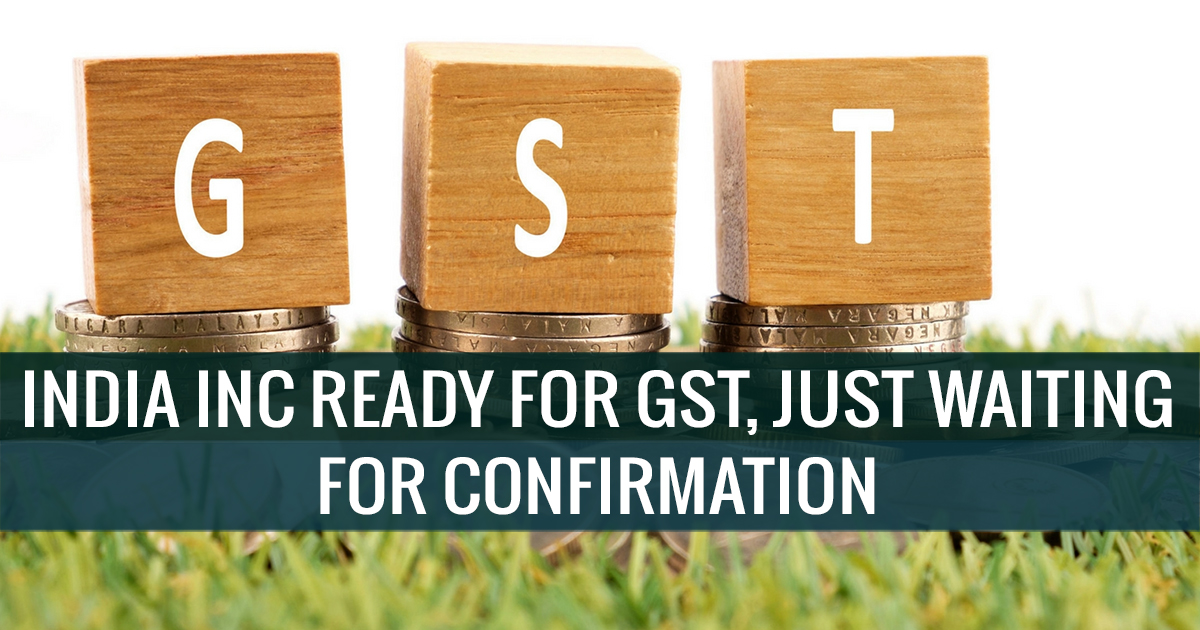
Sachin Menon, partner and head of indirect tax at KPMG said on the topic that, “Manufacturing companies in categories such as consumer goods, auto, auto ancillaries etc were conscious of GST early on and did begin their groundwork in time. But, the services sector such as banking, insurance, media, and entertainment are not quite ready for an April 1 rollout.”
Read Also: GST Impact on Insurance Industry in India
Retail giants such as Future Group and Shoppers Stop say that they have commenced the way toward being GST-agreeable and can meet the April 1 due date.
Nihal Kothari, director executive, Khaitan, and Co, says one reason for the moderate pace of work with respect to organizations is by virtue of the continuous talks and considerations between the Center and states relating to GST.
He further added that “The dual control of assessees (tax payers) has not been resolved yet. This is a crucial issue. The GST Council meeting earlier this month was inconclusive because of this. The hope is that it will get resolved with the latest round of meetings this week.”
The GST Council, led by the Union finance minister serve and involving all state finance minister, is meeting on Monday and Tuesday to resolve the distinctions on GST. It is simply after this, tax experts can say, that the administration can persuade the GST Bill into Parliament for it to be cleared.
Related: GST Council: Constitution, Functions, Quorum, Decision-making
Various other head honchos were also on the list for speaking out, like Sumit Malhotra, managing director, Bajaj Corp, the maker of Bajaj Almond Drops hair oil, says that, “The basic framework is there, but the software will have to be put in place and our suppliers and distributors will have to be made aware of the need to move to GST. All this requires time.”
Anjana Ghosh, director, Bisleri International, mentioned that “I am not sure whether the industry is actually prepared for GST by April. The ones who started early may have an advantage, but there are many who don’t have anything in place even now. One reason for going slow is because the (GST) Bill is still under discussion. My guess is that the fence-sitters will get serious the moment the Bill is cleared in Parliament.”
Suresh Nair, partner, indirect tax, EY was seen saying that, “All this has to be coded into the software. Without the final law, it is impossible to compute what the tax implication of various transactions will be,”
Recommended: Gen GST Registration Utility: Easy Way for GST Migration & Registrations?
Roland Folger, managing director and CEO of Mercedes-Benz India, has been optimistic with the decisions and also shared some of his experience, “I had the benefit of shifting to India last year from Malaysia, which happens to be the last country to have moved to GST, Since October last year, we have been preparing ourselves. We have an external partner helping us to be GST-ready. Our component suppliers and dealers are also getting ready. We are conducting training sessions for them.”
Even the Maruti Suzuki is planning ahead to cope up the GST compliance, Ajay Seth, chief financial officer, Maruti Suzuki, said that “We are configuring our business processes, IT and ERP solutions based on clarity available on GST. A rollout plan for migrating to GST has been prepared, which includes an impact study, managing transition, changes required in IT network and training, etc.”









